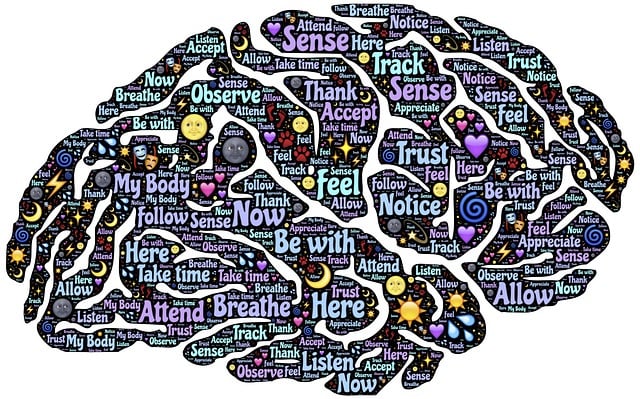In diverse societies like Littleton, cultural competency in healthcare is vital for providing equitable care, especially to patients with Autism Spectrum Disorder (ASD). Healthcare providers must understand ASD's unique cultural aspects and sensory sensitivities to offer inclusive therapy. Training programs should incorporate practical strategies, role-playing, case studies, burnout prevention, and stigma reduction efforts to enhance patient experiences. Measuring success through various evaluations ensures the effectiveness of initiatives in improving Littleton Autism Spectrum Disorder Therapy settings and provider compassion.
In today’s diverse healthcare landscape, cultural competency training is vital for healthcare providers. This article explores the critical role of cultural competence in serving patients with Littleton Autism Spectrum Disorder (ASD), a sensitive and complex patient population. We delve into the impact of cultural sensitivity on ASD therapy outcomes, offer strategies for designing effective training programs, and provide metrics to measure the success of cultural competency initiatives within Littleton ASD therapy settings.
- Understanding Cultural Competency in Healthcare: A Necessary Framework
- The Impact of Cultural Sensitivity on Patients with Autism Spectrum Disorder (ASD)
- Designing Effective Training Programs for Healthcare Providers
- Measuring and Evaluating the Success of Cultural Competency Initiatives in Littleton ASD Therapy Settings
Understanding Cultural Competency in Healthcare: A Necessary Framework

Cultural competency in healthcare is a critical framework that recognizes and appreciates the diverse cultural backgrounds, beliefs, and practices of patients. In today’s diverse society, healthcare providers must understand and respect these differences to offer effective and equitable care. This approach, often referred to as cultural sensitivity or competence, goes beyond mere awareness; it involves adapting services to meet the unique needs of individuals from various ethnic, racial, religious, and socio-economic groups.
For instance, in a city like Littleton, where there is a growing population with Autism Spectrum Disorder (ASD), healthcare providers must be equipped to offer culturally sensitive therapy. This might involve learning about ASD’s cultural manifestations, understanding the impact of cultural barriers on mental health care access, and incorporating inclusive practices into treatment plans. Such efforts are not only beneficial for individuals with ASD and their families but also contribute to improving public awareness campaigns related to mental health and burnout prevention strategies for healthcare providers.
The Impact of Cultural Sensitivity on Patients with Autism Spectrum Disorder (ASD)

Patients with Autism Spectrum Disorder (ASD) often require unique and tailored healthcare approaches due to their distinct social interactions, communication styles, and sensory sensitivities. Cultural sensitivity among healthcare providers plays a pivotal role in ensuring positive outcomes for this population. Understanding the nuances of ASD is essential, especially within the context of Littleton Autism Spectrum Disorder Therapy. By embracing cultural competency training, healthcare professionals can significantly improve patient experiences.
When providers are adept at navigating cultural differences and demonstrating empathy, it fosters trust and open communication with ASD individuals. This can facilitate better symptom management, as patients may feel more comfortable discussing their emotional regulation challenges and seeking support for effective conflict resolution techniques. Moreover, cultural sensitivity contributes to preventing burnout among healthcare workers, enabling them to sustain the specialized care needed for this diverse patient group.
Designing Effective Training Programs for Healthcare Providers

Effective training programs for healthcare providers must be meticulously designed to address the unique needs and challenges within the medical field. When tailored to specific specialties, such as Littleton Autism Spectrum Disorder Therapy, these programs can significantly enhance patient care. For instance, training should go beyond basic cultural awareness and delve into practical strategies for navigating complex patient interactions, especially when managing mental illness. Incorporating role-playing scenarios and case studies related to autism spectrum disorder (ASD) can foster a deeper understanding of patient perspectives, promoting empathy and improved communication.
To sustain healthcare provider engagement, training should also integrate Burnout Prevention techniques and encourage Positive Thinking. Mental Illness Stigma Reduction Efforts play a pivotal role in creating inclusive environments where providers feel empowered to offer compassionate care without prejudice. By combining theoretical knowledge with interactive workshops, these programs can equip professionals with the skills to challenge stereotypes, reduce stigma, and ultimately improve outcomes for patients facing various mental health challenges.
Measuring and Evaluating the Success of Cultural Competency Initiatives in Littleton ASD Therapy Settings

Measuring the success of cultural competency initiatives within Littleton Autism Spectrum Disorder (ASD) therapy settings is vital to ensure these programs are effectively fostering inclusive environments. Therapists and practitioners can employ various methods to assess their impact, including pre- and post-training assessments, client feedback forms, and observation checklists. By comparing scores on scales evaluating cultural sensitivity, communication skills, and conflict resolution techniques before and after training, professionals can gauge significant improvements in cultural competency.
Additionally, tracking long-term outcomes such as client satisfaction, improved therapy engagement, and enhanced communication strategies can provide further insights. Self-care routine development for better mental health is another critical aspect to measure, as culturally sensitive practices often reduce burnout rates among providers. This holistic evaluation approach allows for a comprehensive understanding of the initiative’s success in creating more inclusive and effective Littleton ASD therapy settings.
Cultural competency training is a game-changer in healthcare, especially for patients with autism spectrum disorder (ASD) in Littleton autism spectrum disorder therapy settings. By enhancing cultural sensitivity, providers can improve patient outcomes and create more inclusive environments. Effective training programs, as outlined in this article, should focus on education, role-playing, and ongoing evaluation to ensure success. Measuring the impact of these initiatives is crucial, allowing for continuous improvement and a better understanding of how cultural competency fosters positive patient experiences in Littleton ASD therapy.








